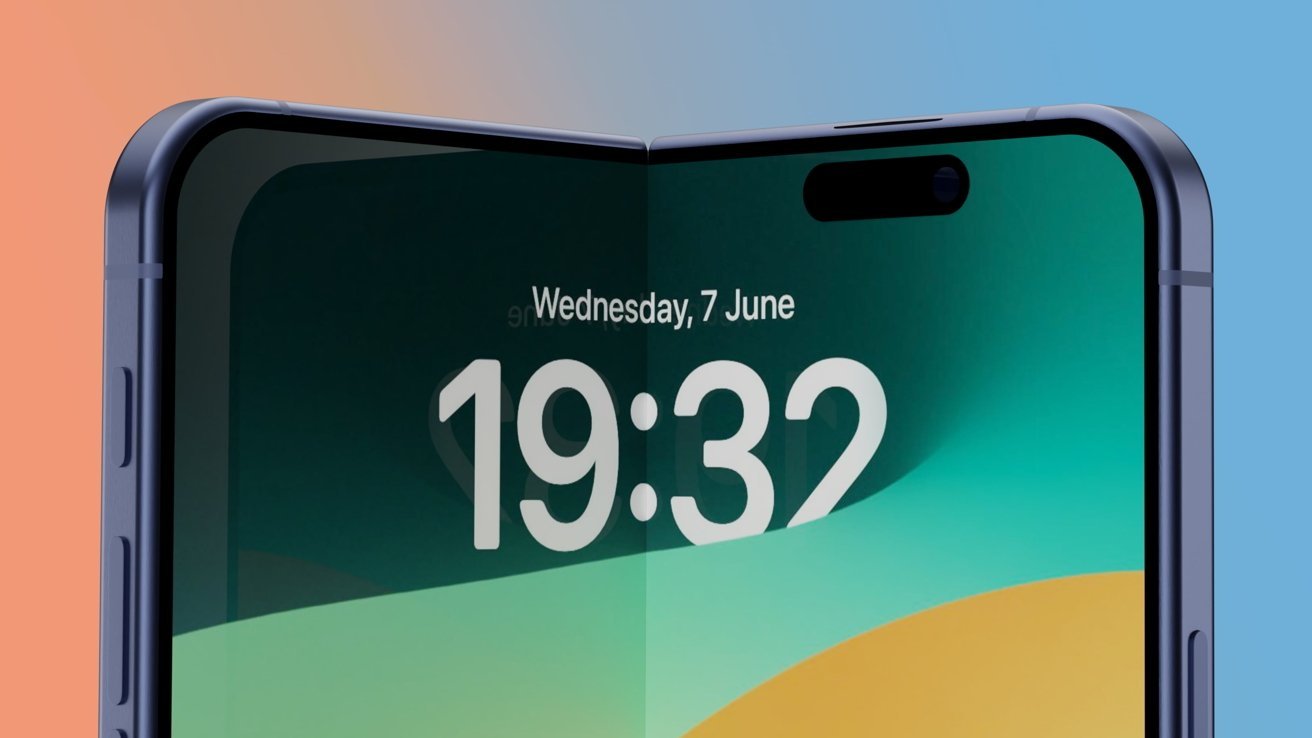Despite a seeming lack of consumer interest, Apple continues to plow ahead in researching future foldable iPhones, iPads, and Macs that could see the light of day as soon as late 2026.

If Apple can develop a durable folding iPhone, it could take that market mainstream.
Although it has not publicly commented on future foldable products, Apple has quietly explored the possibilities of such products for years. Thus far, it has been content to let others try first, though none of the early entrants in the foldable market have had much success so far.
The problems with foldables so far are that they are very expensive, and also very prone to damage, especially around the hinge mechanism. In addition, foldable devices tend to have a visible "crease" in the display along the fold, which becomes more noticeable over time.
Most foldables are also currently not thin or light enough for consideration by Apple. Such devices, which currently capture about 1.5 percent of overall smartphone sales, also aren't up to Apple's standards on energy efficiency, to say nothing of their environmental impact.
Apple's approach, which it often takes when entering an established market, is to analyze what it perceives as pain points in the existing products. It stays out of the market until it has a product that will address the issues it sees with competing products.
Using foldables to reignite consumer interest
A new report from The Wall Street Journal adds to the growing speculation about what Apple may do if it chooses to enter the foldables market.
Changes in the technology of foldable devices, especially those that could bring down the cost, would improve their popularity with consumers. Apple has been said by reliable sources to be studying the various challenges of foldables.
Apple's existing iPhones remain very popular in most regions of the world, but a truly "all-new" model that incorporated a new technology like folding could spark fresh consumer interest. This could bring new buyers to Apple, particularly if it can resolve the issues with the hinge and creasing effect through new technologies.
That said, the company is unlikely to introduce a foldable in the immediate future. Supply chain analyst Ming-Chi Kuo has suggested Apple could bring one or more foldable devices to market as soon as 2027.
The first such device might not, however, be an iPhone. Kuo has suggested that an all-screen version of the MacBook Pro might be among the first Apple foldables.
A foldable MacBook Pro could potentially appear as soon as 2027.
Such a device might work more like Microsoft's Surface Pro tablets and notebooks, which can include a keyboard and trackpad in the casing. The bottom part of the folding display could be used either for an on-screen keyboard or to run a second program.
It's not just Apple that would like to overcome the inherent issues in foldable devices. Samsung, both a competitor and a major component supplier to Apple, set up a business group specifically to work on the shortcomings of foldable displays.
A foldable future?
If the cost can be brought down and the reliability of such devices can be increased, foldables might escape the niche share of the market they currently occupy. Apple could conceivably offer a future iPhone model that would be a foldable device by 2027.
The company could decide to make an iPhone that is priced similarly to the iPhone Pro or Pro Max, but would rely on its larger unfolded display and compact design to obscure the lack of typical iPhone Pro features, such as a higher-quality camera system.
An all-screen MacBook has been prepared for in patent filings for years already, but the idea would seem to be even more suitable for Apple's iPad line, especially with its support for the Apple Pencil.
These rumors have been around for years, but Apple has publicly promised some coming shakeups to its iPhone line in the years ahead, started with the alleged iPhone 17 Air, which is said to be notably thinner and lighter than the standard iPhone. It's expected to be announced in the fall of 2025.
Just as Apple perceives there to be a market for a lighter iPhone, it might also believe that solving the "pain points" in foldable technology might open up a whole new audience for the iPhone. "Getting it right" in consumer minds is what made the iPad a success compared to Microsoft's first forays into tablets -- Apple may see the chance to take foldable tech into a wider, more mainstream audience.